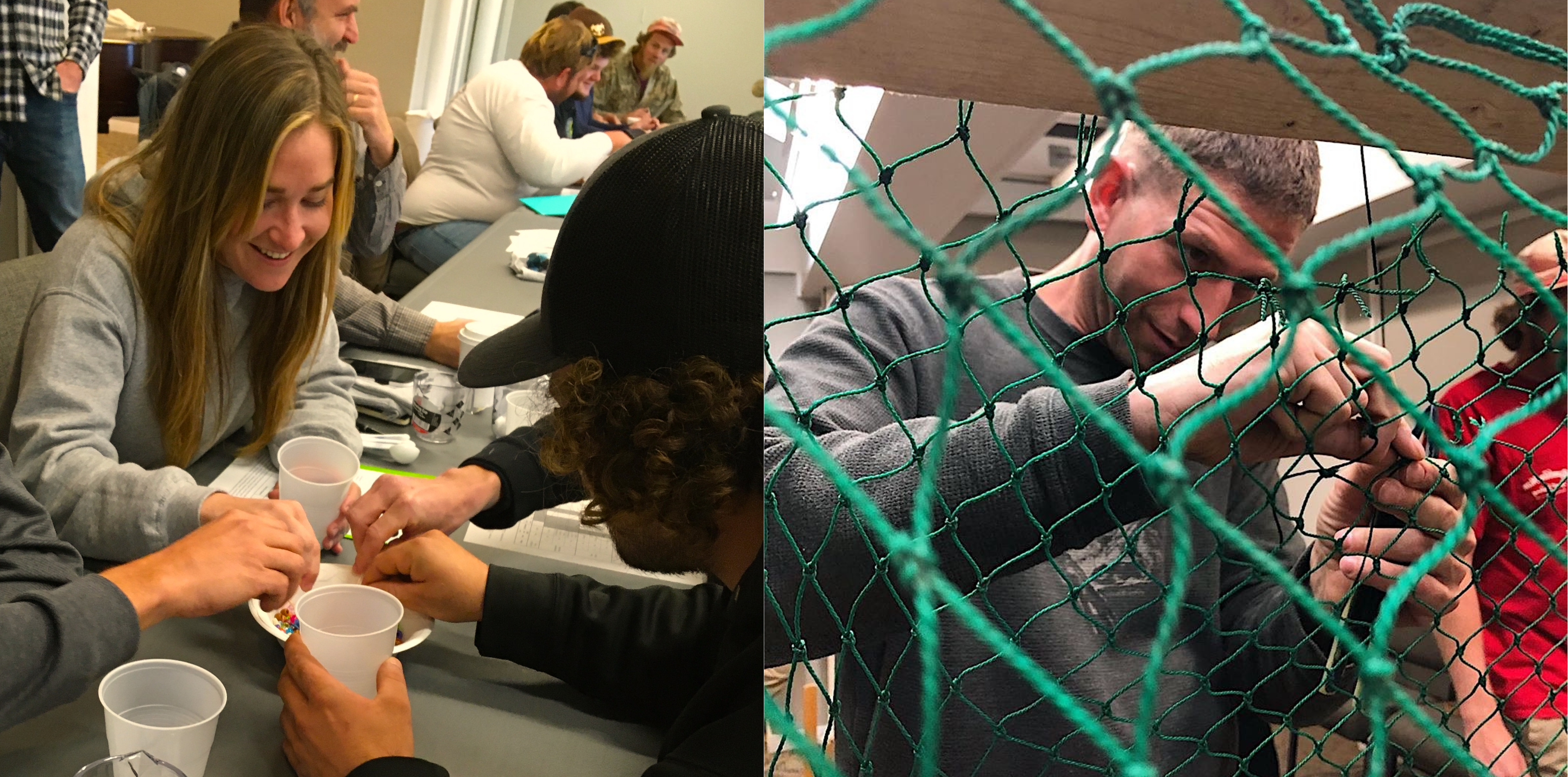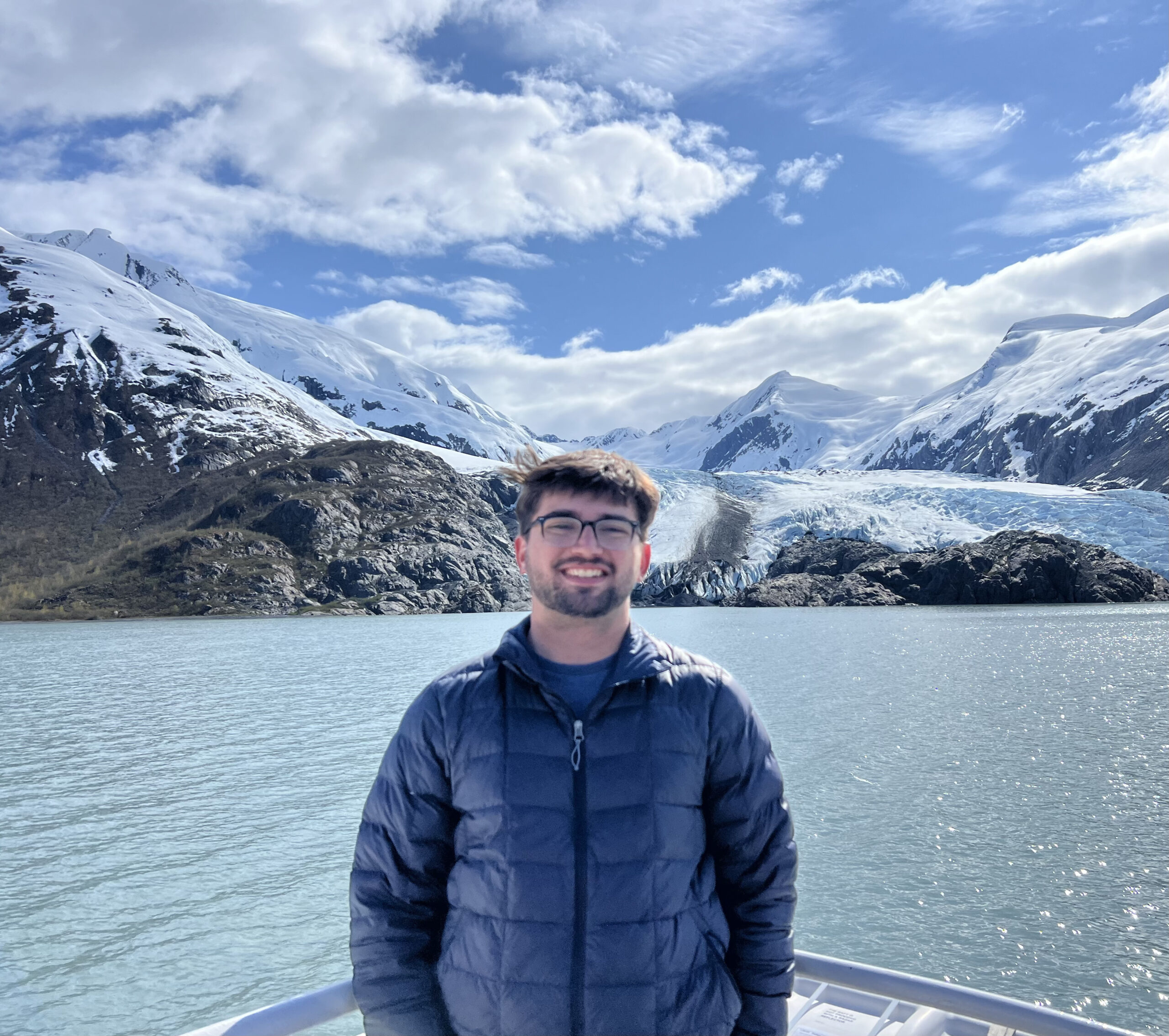NC Sea Grant to Lead Regional Partnership for Seafood Workforce Development

For Immediate Release
Contact: Sara Mirabilio, semirabi@ncsu.edu
North Carolina Sea Grant will join colleagues from the South Carolina Sea Grant Consortium, University of Georgia Marine Extension and Georgia Sea Grant, and Carteret Community College (CCC) to develop a program of essential skills for the “next-gen seafood industry.” The two-year project is one of three announced today by NOAA Sea Grant.
“Supporting the training and development of seafood professionals is a key component of ensuring sustainable U.S. fisheries and aquaculture and a priority for Sea Grant,” said Jonathan Pennock, director of the national Sea Grant College Program. The FY2023 Young Fishermen’s Career Development Projects competition has been in response to the federal 2021 Young Fishermen’s Development Act. Pennock also announced separate but related funding for seven projects to support aquaculture workforce development.
Despite deep ties to its marine fishery resources, commercial fishing fleets across the nation are aging as younger people seek jobs outside of the industry — one of many threats to the resiliency of the South Atlantic region’s commercial seafood industry.
The new training will focus on topics identified through numerous focus groups with the industry, held throughout the region. “Our discussions identified safety skills as a key need, along with financial literacy and business tools on topics including liability, management and marketing,” notes Sara Mirabilio, a fisheries specialist with NC Sea Grant, who will lead the program.
“Even more important, these stakeholders indicated field-based, hands-on learning alongside established industry mentors as being essential to those aspiring to cultivate necessary skills to work in the commercial seafood sector,” she adds. Paid apprenticeships will complement classroom learning, with commercial fishing operations in all three states serving as apprenticeship hosts.
Susan White, NC Sea Grant executive director, is pleased with the spectrum of seafood professions to be included, as well as the collaboration across programs. “I am impressed with the strong role of Carteret Community College — a long-term partner for NC Sea Grant — in this a unique regional workforce development program,” White notes.
The multifaceted training will draw upon the successful NC Shellfish Farming Academy, developed in an earlier partnership with NC Sea Grant and the CCC Aquaculture Technology program, with funding from NOAA. The new courses also will build on lessons and feedback from the Fish Camp workshops offered by NC Sea Grant in recent years, and similar programs in South Carolina and Georgia, as well as across the nation.
“Our goal is to increase the number of skilled individuals who are able and encouraged to enter career paths that support all facets of supplying high-quality seafood to consumers,” adds Bryan Fluech, Georgia Sea Grant associate marine extension director.
The team will market the training to recruit individuals from groups that are now underrepresented in the region’s seafood industry. “We want to address historical barriers to entering these careers by offering wrap-around services like housing, travel support, and completion stipends in addition to hands-on and classroom training,” says Matt Gorstein, director for development and extension for the South Carolina Sea Grant Consortium.
The project also includes the nonprofit Alaska Marine Safety Education Association, known as AMSEA. Along with the career development, the team will include a focus on preserving local culture and heritage foodways.
Pennock noted that the new projects across the nation are examples of the work Sea Grant does to support Sustainable Fisheries and Aquaculture, a focus area for the national program.
The national network’s fisheries portfolio includes fisheries research, technical assistance and support to fishermen by Sea Grant extension teams, and education and training programming offered by each of the 34 Sea Grant programs.
Similarly, Sea Grant’s aquaculture portfolio includes a broad range of research and technical assistance efforts to inform the U.S. Great Lakes, coastal, and marine aquaculture, including knowledge exchange hubs, technical research, social science, and resources for new business owners.
Lead photo: Participants at Fish Camp partake in different hands-on activities. Photo courtesy of Sara Mirabilio
##
Learn more about Fish Camp here.
Read more about the Shellfish Farming Academy here.
- Categories:


